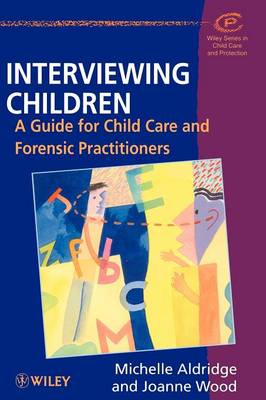Wiley Series in Child Care & Protection
1 total work
The process of interviewing a child can be a daunting experience for both the child and the interviewer. Interviewing Children offers practical advice for understanding the linguistic abilities of children and for applying that knowledge effectively to the evidentiary interview. Drawing on real transcript data and data from language games with presumed non-abused children, the authors examine each stage of the phased interview as outlined, in the Memorandum of Good Practice. Incorporating case studies, checklists, and self-assessment sheets, Interviewing Children provides step-by-step guidelines for
* establishing an effective interview setting
* building rapport with the child
* overcoming the difficulties that can arise when eliciting free narrative accounts
* understanding which question types to use and which to avoid
* identifying and using age-appropriate language
* interviewing disabled children and those who are bilingual or use a minority language
This book s practical and jargon-free approach will appeal to anyone involved in interviewing children, including police officers, social workers, lawyers, paediatricians, and psychologists.
* establishing an effective interview setting
* building rapport with the child
* overcoming the difficulties that can arise when eliciting free narrative accounts
* understanding which question types to use and which to avoid
* identifying and using age-appropriate language
* interviewing disabled children and those who are bilingual or use a minority language
This book s practical and jargon-free approach will appeal to anyone involved in interviewing children, including police officers, social workers, lawyers, paediatricians, and psychologists.
